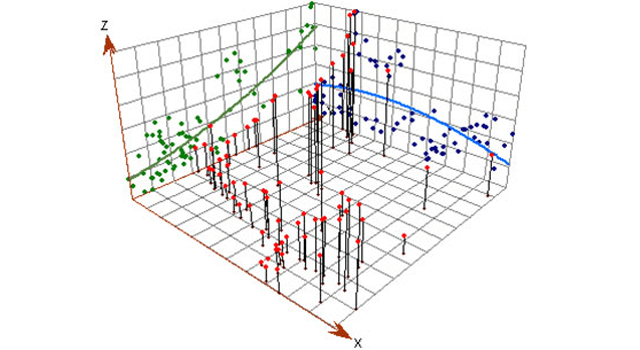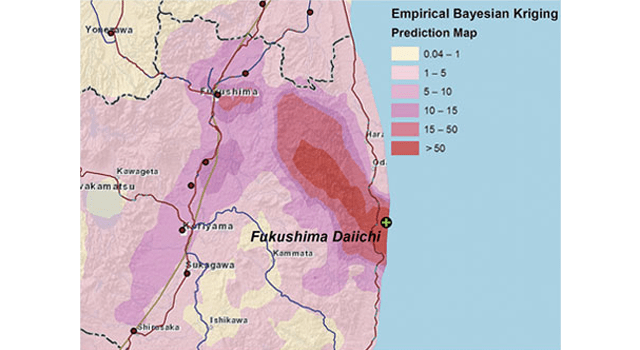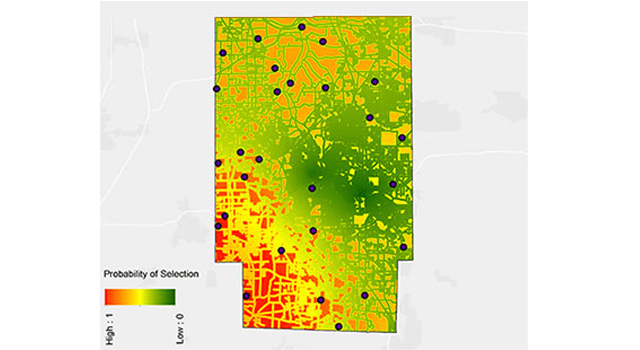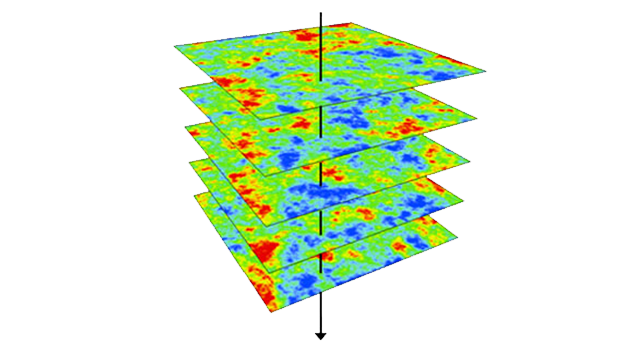Model Spatial Data and Uncertainty
It is not always possible or practical to predict and model spatial phenomena through real world observations. ArcGIS Geostatistical Analyst lets you generate optimal surfaces from sample data and evaluate predictions for better decision making.
These are especially helpful for atmospheric data analysis, petroleum and mining exploration, environmental analysis, precision agriculture, and fish and wildlife studies.

Explore Your Data
ArcGIS Geostatistical Analyst extension offers a suite of interactive tools to visually investigate your data prior to analysis. These tools allow you to:
- Investigate the distribution of your data and look for outliers (Histogram, QQ Plots)
- Look for systematic trends in your data (Trend Analysis)
- Explore local variability and clusters (Voronoi Map)
- Visualize spatial correlation within and between datasets (Semivariogram/Cross-Covariance Clouds)
Create Precise Predictions
When data are incomplete or subject to error, ArcGIS Geostatistical Analyst provides a probabilistic framework for quantifying uncertainties. Create surfaces from sample data using these interpolation methods:
- Inverse distance weighted
- Radial-based functions
- Global and local polynomials
- Kriging for exact data and for error-contaminated data
- Cokriging (multivariate version of the above-mentioned kriging models)
- Isotropical or anisotropical models


Evaluate and Assess
Evaluate how your models perform using the following diagnostics.
- Cross-validation for checking the model's quality
- Validation for checking prediction quality
- Compare cross-validation results of several models
- Show predicted value at cursor (MapTips)
Simulate Realizations
Create multiple versions of a surface to perform risk analyses. Geostatistical simulation produces multiple surfaces that mimic the real phenomenon and provide possible values. This provides a basis for risk analyses, economic decision making, and other estimations involving uncertainty, allowing analysts to make more informed decisions.


Refine and Enhance Your Surfaces
Improve decision making by enhancing and sharing your surfaces. Use renderers such as contours, regular grids and hillshading for enhanced surfaces. You can then export your prediction results as contour lines, polygons, raster or as a layer that stores the model parameters for the renderers that were used.
Contact us to get started
Join our growing list of interested users and organizations.
Get in touch with us
Product Information
Get answers for your product, industry or technical inquiries
Contact Us
Share your details with us
Give us a call
Talk over the phone
